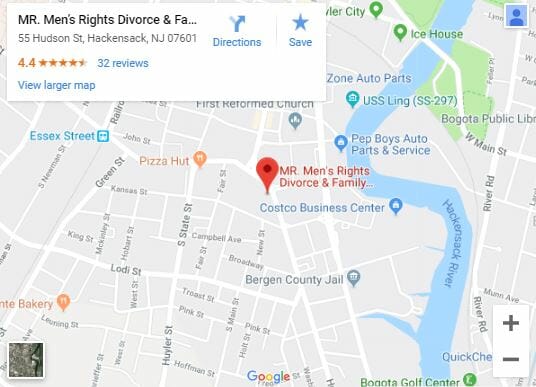
Are you nervous to get divorced because you think you are going to lose your health insurance, or your spouse is going to be without it? Although you both may not be getting along in the household, you may not necessarily want to see your spouse, or the other parent of your children be stuck without halfway decent health insurance—or have that happen to you for that matter! This is a common concern and topic that is addressed in every divorce.
At Men’s & Fathers’ Rights Divorce Lawyers by Schultz & Associates, LLC, our attorneys can guide you through all aspects of the divorce process, including decisions about the best healthcare insurance solution for you and your family, and perhaps the most important aspect of that— affording it.
The federal Centers for Disease Control and Prevention estimates that about 56.4% of Americans have health coverage through an employer. If you’re one of these people, your coverage may be based on your marital relationship. If your spouse has a job that provides health insurance for the family and you don’t, you could be at risk of losing that coverage as a result of your divorce. Another important consideration is your children’s health insurance. You may be concerned about how a divorce could impact their coverage, particularly if you have primary custody but do not have insurance through work.
Our attorneys have experience and knowledge you can count on to determine how best to maintain coverage for you and your children. We understand that the divorce process can carry a lot of stress. When you work with our team at Men’s & Fathers’ Rights Divorce Lawyers by Schultz & Associates, LLC, you’ll find we’re a compassionate advocate who makes your security and interests a core focus of our work.
What Happens to Health Insurance During Divorce?
Health insurance coverage during divorce should continue as it was during your marriage and provide the same level of coverage that you and your children had before anyone even said the word divorce, hired attorneys, or filed anything with the Courthouse. It is imperative to understand that the health insurances—and all other insurances for that matter—must stay in place pending the finalization of all the divorce issues. In other words, you’re your medical coverage and the rest of your financial life should be maintained in accordance with the status quo until the divorce is complete. If you think you may lose coverage due to a reason other than your divorce, such as a change in employment status for you or your spouse, we can address that early in the process and help identify what the immediate options may be. Typically, however, the status of health insurance remains unchanged, at least during divorce process itself.
Can You Keep Your Spouse on Health Insurance After Divorce?
Once a divorce is finalized (i.e.- the Judge puts his/her stamp on it), then you are no longer considered spouses in the true definition of the word. The health insurance policy that you are current covered under will no longer recognize you as a spouse and therefore you cannot be covered under the “family member” rules. But do not be afraid. It’s not like they have some secret 007 person who knows the second the Judge’s ink is on the paperwork and they kick you off the insurance policy. Most insurance companies have a transition timeframe to allow you to obtain alternate insurance or elect their continuing coverage, but at your own expense. This is often called COBRA or Continuing Coverage.
COBRA benefits are generally known for when an employee gets fired or laid off. However, it also applies to now divorced ex-spouses of employees once the divorce is final. There is a cautionary tale here as well that you need to know. If you elect your former spouse’s company’s COBRA or continuing coverage benefits, it is usually only available to you for 36 months and you are 100% responsible for the monthly premiums. As you may already be thinking, this is exactly why this topic must be discussed along with all the other issues in a divorce to make sure everyone knows what options are out there and the hypothetical costs to ensure that when discussing other financial arrangements, this is another consideration.
How a Divorce from Bed and Board Might Protect Your Health Insurance Coverage
There is one other way to maybe stay on your spouse’s health insurance, although this mechanism is becoming rarer and rarer as time evolves. It is called a Bed and Board Divorce (NJSA §2A:34-3). It originated from way back when and it was known to be one exception to the rule where you could be divorced in all aspects, but instead of an “absolute divorce” you would obtain a document called a Bed and Board Divorce. This said, don’t get too excited. Every health insurance company has their own policy rules about this, so you must check with the health insurance carrier. It has been reported that most health insurance carriers caught onto this loophole and closed it.
Some people believe that a legal separation would be a work around to the health insurance issue. Nice try. Unfortunately, New Jersey does not have any formal legal separation laws for married couples so if you physically separate, but do not formally divorce, you are still considered married. That may be something okay for health insurance reasons but be mindful that it could impact the rest of your financial situation, including but not limited to equitable distribution and alimony.
What Are Health Insurance Options After Divorce?
There are many kinds of health insurance. Which one is right for you and your family depends on your situation:
- Employer-provided medical insurance: If both spouses work for employers who offer health insurance, you probably chose spousal coverage from one employer, based on either benefits or cost. After a divorce, each one of you could elect to obtain coverage on your own employer’s group policy and be responsible to pay for it. If you have children, you have to discuss whether the children will be covered under one policy or two (usually health insurance carriers do not like when people are double covered and that could come with a whole host of other issues) =
- Individual medical insurance: You could purchase medical insurance policies through an insurance agent. You can shop around to get the best price for the coverage you seek. The disadvantages may be high costs, deductibles, co-pays, and limited coverage, depending on your budget.
- Affordable Care Act (ACA)/Obamacare coverage (The Marketplace): Medical insurance for you and your children is probably available through the state’s health insurance marketplace. Subsidies are available based on your adjusted gross income, which doesn’t include receiving spousal or child support. Losing coverage because of a divorce would be a qualifying event allowing you to sign up immediately. You wouldn’t have to wait for the next open enrollment. Talk to a tax advisor about whether payment or receipt of any alimony would impact your adjusted gross income for qualifying purposes.
- Medicare: If you’re older than 65 and collecting Social Security benefits, you should qualify for Medicare coverage. Medicare does not cover all of your expenses, but your coverage can be supplemented with Medigap insurance.
- Medicaid: To be eligible for Medicaid, you must: 1) live in New Jersey; 2) be a U.S. national, citizen, permanent resident, or legal alien; 3) need healthcare/insurance assistance; and 4) earn very little income. You can also qualify for Medicaid if the eligibility status applies to you and you’re pregnant, responsible for a child 17 years old or younger, or you have a disability or a family member in your household has a disability.
We Can Help You with Health Insurance Coverage After a Divorce
Every divorce is unique. If both you and your spouse work for employers offering medical insurance, it may not be a big concern in your divorce. If your marriage lasted many years and one of you didn’t work, or had a low-paying job, and suffers from a chronic condition or disability, health insurance could be a major source of disagreement and stress. If you have children, which coverage and plan will they be on short and long term and who contributes towards the cost of the children’s portion of the health insurance is a topic for discussion in the divorce with your lawyers.
At Men’s & Fathers’ Rights Divorce Lawyers by Schultz & Associates, LLC, our attorneys have decades of experience representing divorcing spouses facing health insurance issues. We are committed to finding solutions that take into account everyone’s concerns. We are skilled negotiators who look for win-win outcomes and tenacious litigators who fight for our client’s interests. To learn more about how we can help, call us at 201-880-9770 today.

